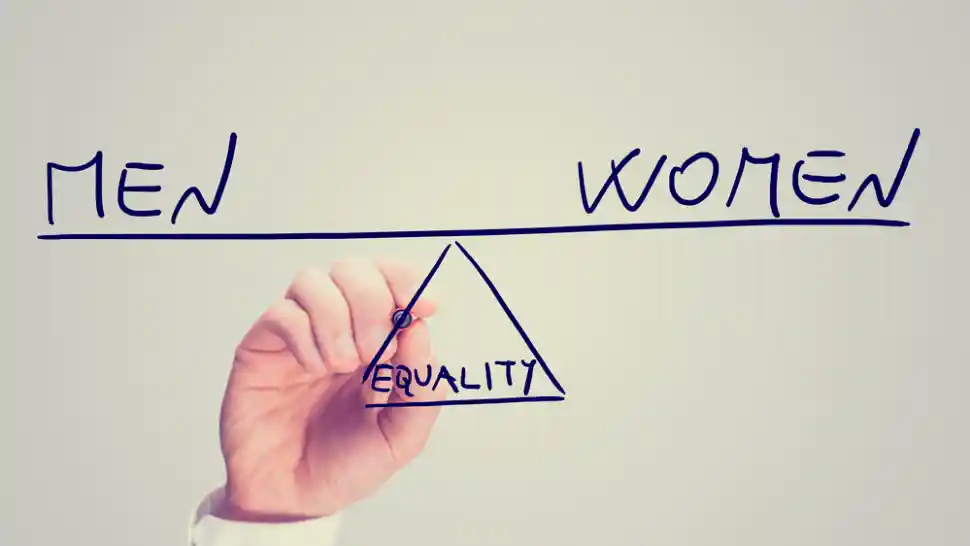The Role of Higher Education in Gender Sensitization

Gender sensitization and gender parity are two of the many fundamental issues that have begun receiving their due attention. We have all been born, grown, and shaped by the influences of the permeating patriarchy that has been deeply entrenched in the human psyche. Women since time immemorial have been treated as second-class citizens and as a commodity to be ‘preserved’ and ‘controlled’. That is where intellectual thought and discourse come into the picture as humans grew to question what surrounded them, materially, socially, culturally, economically, or politically.
Since prehistoric times, humans have been learning and teaching one another. This grew into institutions of learning of which institutions of higher education have had an impactful role to play. Universities such as Harvard University and Oxford University have long served as the centers of critical education and raised personalities that have influenced the course of human civilization. Gender sensitization, too, has been encouraged because universities exist to question the imposed standards of orthodoxy and empower women to achieve parity in their expression, ambitions, and rights.
In today’s article, we will discuss briefly the relevance of higher education in gender sensitization.
-
In Breaching the limitations
Higher Education is an advanced stage of human learning. Once you finish school and join a university, you are placed in an environment composed of growing adults. Women have been traditionally constrained to limit their interactions with the outside world. Probably out of fear that women would be able to use their mental faculties and challenge the existing social institutions. However, when women are placed in heterogeneous environments such as those in universities they are able to explore beyond the orthodox limitations imposed on them. Self-esteem issues that plague the women population are effectively dealt with as they interact with people and engage in diverse activities.
-
Gender Sensitization of others
The process of gender sensitization through higher education should not be restricted to women. Many universities have introduced curricula that focus on the parochial ideas which have become entrenched in the male society. It is imperative to highlight that we have come to terms with patriarchy and misogyny so much that we often ignore the subtle displays of the same. In order to create a world aware of the issues faced by women simply because they are women, men are needed to be taught and trained in these matters. They must be made sensitive to the issues peculiar to women through comprehensive programs. Universities such as the University of Auckland, DePaul University, and Arizona State University are known for their programs on gender studies.
-
Better participation in the workforce
Orthodoxy claims that women are intellectually and physically inferior and cannot generate results as effective as those by men. This notion is deep in misogyny and patriarchy and is triggered by the paranoia that women might upset the long-established conventional framework. As a result, women were forbidden to participate in the labor force. However, with the expansion of education and scholarship in Higher Education, women have gained the footing to participate and contribute. Access to Higher Education to women has resulted in increased financial independence of women and improved chances of career and personality development.
-
Realization of rights
Women have been disenfranchised for a long time. Much of this disenfranchisement has come from the fact that they had been legally treated as ‘chattels’ and were reduced to mere property. In India, for example, the colonial Adultery Law, which has now been decriminalized, regarded adultery as a case of trespass on the property of the husband when his wife was involved in adultery. Since the 19th century, the women empowerment movement has gained traction and universities have been at the forefront of it. Student movements across the globe have fought and won several battles for the welfare of women. It could have only happened in the presence of intellectual discourse that institutions of higher education encouraged. Today, universities are participating in empowering women with the tools to exercise their rights. Women have begun questioning the status quo and demanding answers – and the right to know is one of the many rights women have been actively enforcing to realize others.
Bring the best of the CEOWORLD magazine's global journalism to audiences in the United States and around the world. - Add CEOWORLD magazine to your Google News feed.
Follow CEOWORLD magazine headlines on: Google News, LinkedIn, Twitter, and Facebook.
Copyright 2025 The CEOWORLD magazine. All rights reserved. This material (and any extract from it) must not be copied, redistributed or placed on any website, without CEOWORLD magazine' prior written consent. For media queries, please contact: info@ceoworld.biz








